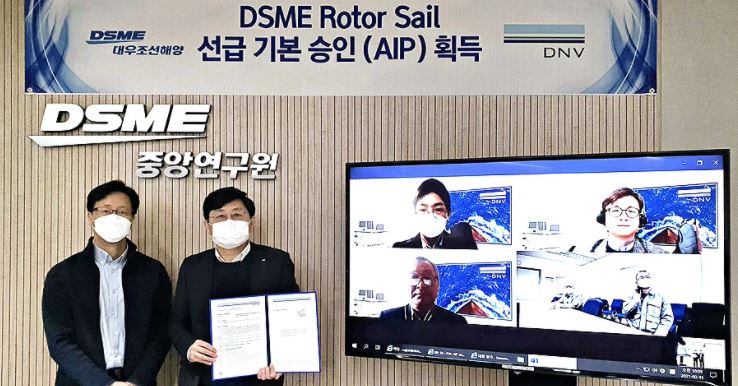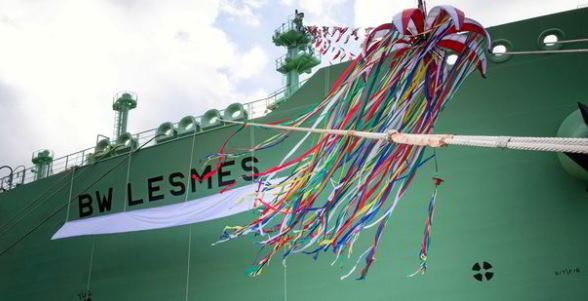
Daewoo receives approval in principle for its rotor sail system
Daewoo Shipbuilding & Marine Engineering (DSME), a South Korean shipbuilder, has received an Approval in Principle (AiP) from DNV for its rotor sail system.
The installation of cylindrical columns (rotors) on the ship's deck to produce additional power to propel the ship using the force of the wind and column rotation during operation is known as a rotor sail system.
Super-large crude oil carriers and LNG carriers will also benefit from the environmentally friendly ship technology.
According to the Energy Efficiency Index (EEDI), the operation of the rotor sail system is projected to save more than 5% in power.
The AiP helps DSME to become the first shipbuilder in South Korea to produce the rotor system, giving them a competitive advantage in the wind propulsion industry.
DSME has received orders for 19 ships totaling $1.79 billion so far this year. As far as we know, double-fuel propulsion systems are used on 15 of the 19 ships ordered this year. These involve ten ultra-large crude oil carriers, five extra-large LPG carriers, and four container ships, increasing the number cost to $7.7 billion, or around 23% of the goal.
Shell will charter ten VLCCs that will be fueled by LNG. Advantage Tankers, AET, and International Seaways are among the operators.
DSME's Okpo Shipyard will build the 300,000-dwt vessels, which will be delivered to their owners in stages by the second half of 2023.
Maritime Business World




YORUM KAT